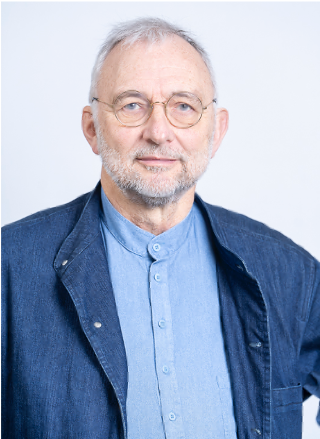
Ingénieur-chercheur au CEA
Directeur de recherches et Pr. INSTN
ICSM (Bât. 426)
Site de Marcoule
BP 17171
F-30207 Bagnols-sur-Cèze Cedex
e-mail : thomas.zemb AT icsm.fr

A l’UMR Claude Fréjacques (1979 – 1985)
Mise en évidence par SAXS/SANS & Lumière Rayleigh/quasi-élastique de la structure de l’interface o/w de micelles directes et inverses.
A l’Australian National University (1985 – 1989)
Investigation et compréhension du phénomène d’anti-percolation électrique observé dans de très nombreuses microémulsions et explication générale par les contraintes d’empilement de films moléculaires.
Au laboratoire de diffusion aux petits angles (créé en 1989 – 1992) au Service de Chimie Moléculaire
Première détection des agrégats faibles w/o qui sont à l’origine de toute extraction-liquide et ne sont pas uniquement des complexes supramoléculaires de st½chiométrie fixée.
Au laboratoire LIONS (créé en 1992 – 2003)
Dans la recherche de surfaces solides modèles permettant l’étude de la séparation d’ions, découverte fortuite de l’existence de colloïdes géants « catanioniques » formés de bicouches solides de taille et de forme contrôlables par formulation.
Au sein de l’Institut de Chimie Séparative de Marcoule (2004 – )
Direction des activités liant structure et thermodynamique des systèmes colloïdaux pour la séparation. Grâce à l’ERC REE-CYCLE, développement de la « iénaïque » en collaboration avec J.-F. Dufrêche. Cela a permis l’observation multi-échelle, la compréhension et la mise en ½uvre d’hydrotropes pour l’extraction sobre sans tensio-actifs, mais aussi sans solvant ou même sans extractant.
Projets en cours 2024
Tensioactifs très hydrophiles formant des micelles directes sans eau et leurs applications, micelles directes avec Univ. Regensburg, phéromones et aérosols avec MPIKG Potsdam et Université de Tours et nanoparticules antivirales à Freie Univ. Berlin.
Au laboratoire de rayons X aux petits angles de Saclay (1988 – 1992)
Conception et construction sur une source unique à anode tournante de deux caméras originales de rayons X permettant une dynamique de trois décades en angle de diffusion et de 4 décades en intensité absolue pour utilisation sur de nombreux systèmes colloïdaux, dont la première détection d’agrégats faibles responsables de l’extraction telle que mise en ½uvre à La Hague & application des mêmes optiques dans l’APS Soleil (configuration initiale de la ligne ID02).
Dans le groupe LIONS (1992 – 2003)
Mise au point d’une plate-forme complète de pression osmotique couvrant sept décades : équation d’état de latex, de systèmes catanioniques, de gonflement par imprégnation du bois, contrôle de membranes mixtes de phospholipides et de glycolipides.
ICSM (2004 – 2015)
Mise au point d’un appareil instrumenté isolé optiquement et sonochimie.
ERC REE-CYCLE (2013 – 2019)
Dispositif de mesure par fluorescence de rayons X en ligne de l’extraction milli-fluidique (avec Jean-Christophe Gabriel).
Projets en cours 2024
Réalisation d’un appareil DLS de diffusion quasi-élastique Rayleigh couplé à un turbidimètre et à un réflectomètre avec l’industriel Cordouan Instruments et centrifugation douce couplée à mélangeur rapide à proximité de points critiques avec ENSIACET (Toulouse).
Catanioniques
Co-cristallisation développés et brevetés pour la protection anti-corrosion en milieu salin et la réduction de la friction aqueuse (abandonnés en 2008) et qui se sont avérés ensuite être efficaces comme base de brevets de démaquillants pour l’Oréal et aussi être cruciales pour l’optimisation des formulations introduisant des lipides cationiques dans les nanoparticules lipidiques des vecteurs de vaccins à ARNm.
Nanoparticules d’uranium
L’étude des diagrammes contenant des cations uranyles et des agents structuraux a permis de proposer de nouvelles voies de synthèse de nanoparticules contrôlées d’uranium, avec des possibilités d’obtenir des mélanges plus homogènes avant céramisation.
Agrégats moléculaires faibles pour la séparation fine
Brevets couvrant des synergies et l’emploi de modificateurs hydrotropes dans l’extraction liquide-liquide des métaux, en cours d’extension dans l’extraction depuis la biomasse. L’emploi des hydrotropes en formulation dans l’extraction ouvre en particulier des perspectives sur des procédés plus rapides, plus efficaces et minimisant les effluents nécessaires pour le recyclage des métaux, mais aussi pour le futur cycle des neutrons rapides.
En cours
Catanioniques pour des sprays antiviraux…